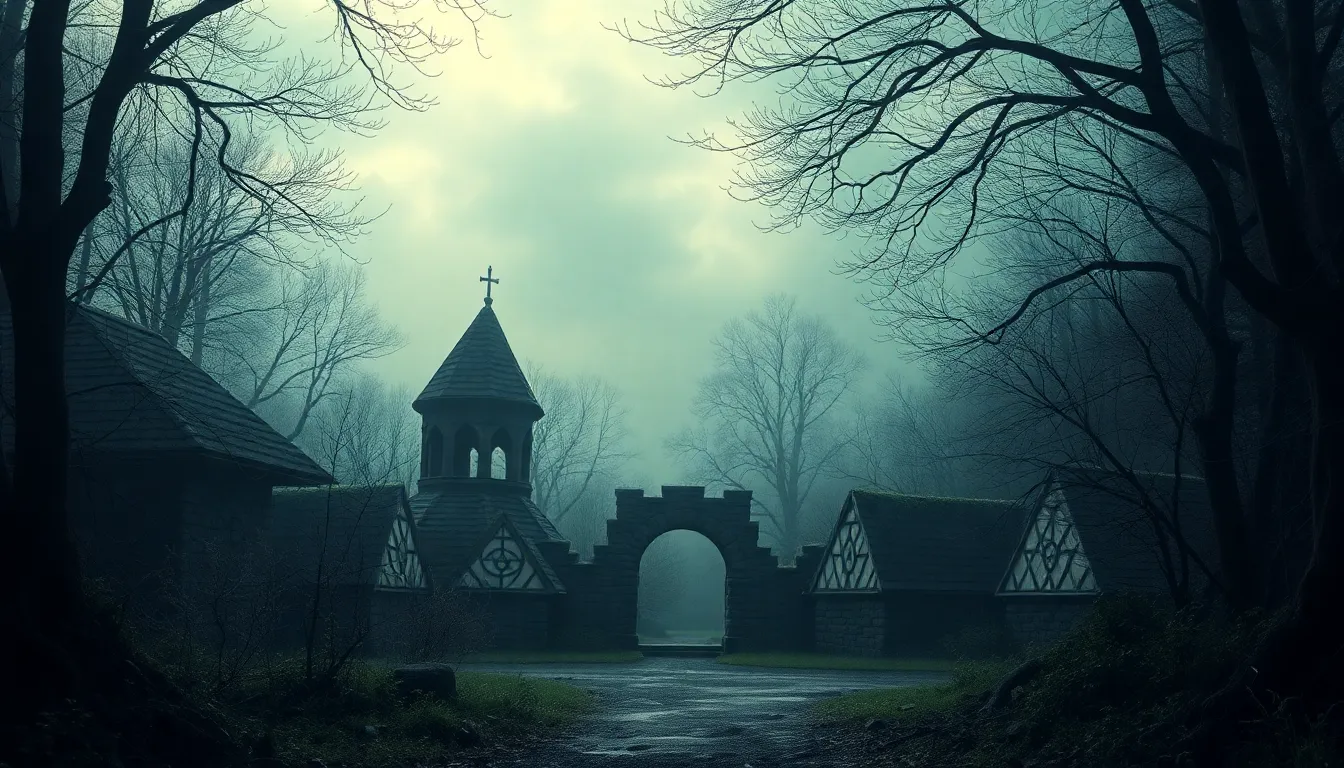The Island of the Lost: Myths of Shipwrecked Souls
1. Introduction to the Island of the Lost
The concept of lost islands is a prevalent theme in various mythologies around the world. These islands often symbolize not just physical locations, but also the emotional and psychological landscapes of individuals who find themselves adrift—be it through shipwrecks, metaphorical journeys, or existential crises. In many cultures, tales of shipwrecked souls serve as cautionary narratives, reflecting humanity’s fears and aspirations in the face of the unpredictable sea.
Shipwreck narratives hold a significant place in cultural storytelling, offering insights into human resilience, survival, and the quest for redemption. The island of the lost, in particular, has emerged as a powerful motif, symbolizing a space where individuals confront their deepest fears and desires. Various cultures have woven the significance of such islands into their mythos, often illustrating the delicate interplay between life, death, and the unknown.
2. Historical Context of Shipwrecks
Throughout history, numerous shipwrecks have left indelible marks on the cultures they touched. Notable examples include:
- The wreck of the Titanic, which sparked global fascination and led to numerous books and films.
- The Spanish galleon Nuestra Señora de Atocha, whose treasure sparked treasure hunts and legends of lost gold.
- The Essex whaling ship, which inspired Herman Melville’s “Moby-Dick,” highlighting the perils of maritime life.
The role of maritime trade and exploration has been pivotal in shaping myths surrounding shipwrecks. As sailors ventured into unknown waters, tales of lost ships and their crews became intertwined with the folklore of the regions they explored. These stories have influenced literature and folklore, serving as a reminder of the dangers of the sea and the mysteries it holds.
3. The Legend of the Island of the Lost
The myth of the Island of the Lost has origins that can be traced back to ancient mariners and their tales of treacherous waters. This island is often depicted as a mystical place, shrouded in fog and danger, where shipwrecked souls wander aimlessly. Its key characteristics include:
- Isolation, representing the physical and emotional distance from the world.
- Unpredictability, as the island is often said to shift or disappear.
- A haunting beauty, where lush landscapes contrast with the despair of the lost souls.
Notable figures associated with the legend include explorers like Captain James Cook and fictional mariners from literature who navigated treacherous waters, adding to the lore of the island.
4. Shipwrecked Souls: Tales of Survival and Despair
Personal accounts of shipwreck survivors often reveal harrowing experiences filled with despair and moments of profound resilience. These narratives not only recount the physical challenges faced but also the psychological toll of being lost at sea. Survivors often describe feelings of hopelessness, isolation, and the struggle for survival, which contribute significantly to the mythos of the island.
Some key themes emerging from these tales include:
- The battle against nature’s fury and the elements.
- The search for meaning and hope amidst despair.
- Connections formed between survivors and the bond of shared trauma.
These stories enhance the narrative of the Island of the Lost, framing it as a place where the human spirit is tested against the backdrop of the vast, unforgiving sea.
5. Spiritual and Supernatural Elements
The Island of the Lost is often portrayed as a realm inhabited by spirits and entities, believed to be the souls of those who perished at sea. These supernatural elements add a layer of complexity to the myths surrounding the island:
- Spirits of the drowned: Many cultures believe that the souls of drowned sailors linger on the island, seeking solace or revenge.
- Guiding spirits: Some narratives suggest that benevolent spirits help lost souls find their way home.
- Cultural interpretations: Different cultures view death and the afterlife in varied ways, shaping their beliefs about the island and its inhabitants.
This examination of the spiritual elements reflects a broader understanding of how death and the unknown are perceived in relation to shipwrecks across cultures.
6. The Island as a Metaphor
The Island of the Lost serves as a powerful metaphor for isolation and loss. It embodies themes of:
- Isolation: The physical separation from society mirrors emotional and psychological alienation.
- Redemption: The journey through despair can lead to personal growth and self-discovery.
- Societal fears: The island reflects collective anxieties about the unknown and the fragility of life.
In this way, the island becomes a canvas upon which personal struggles and societal issues are projected, allowing for deeper exploration of human experience.
7. Artistic Representations of the Island of the Lost
Throughout history, artists have drawn inspiration from the myth of the Island of the Lost, creating works that capture its essence. From literature to visual arts and film, the island has been depicted in various forms:
- Literature: Works like “The Tempest” by Shakespeare and “Lord of the Flies” by Golding explore themes of isolation and survival.
- Paintings: Artists such as J.M.W. Turner have portrayed tumultuous seas and shipwrecks, evoking the emotional weight of maritime disasters.
- Films: Movies like “Cast Away” and “Life of Pi” delve into the psychological journeys of characters stranded on deserted islands.
These artistic representations continue to shape public perception and understanding of the myths surrounding the island.
8. Modern Interpretations and Relevance
In contemporary society, the myth of the Island of the Lost remains relevant, engaging audiences in new ways. The influence of technology and globalization has transformed how maritime myths are perceived:
- The rise of digital storytelling and social media has facilitated the sharing of shipwreck narratives.
- Documentaries and podcasts explore historical shipwrecks, reigniting interest in these tales.
- Globalization has led to a blending of cultural myths, creating new interpretations of the island.
This resurgence of interest in shipwreck stories reflects a timeless fascination with survival and the mysteries of the sea.
9. The Island of the Lost in Popular Culture
The Island of the Lost has permeated popular culture, appearing in various forms of media:
- Literature: Books such as “The Island of Dr. Moreau” and “Treasure Island” explore themes of isolation and adventure.
- Movies: Films like “Lost” and “The Blue Lagoon” depict characters navigating lost islands, echoing the myth’s themes.
- Video games: Titles like “The Legend of Zelda” and “Survival Island” incorporate elements of exploration and survival.
These iconic representations have helped keep the myth alive, ensuring that the stories of lost souls continue to resonate with audiences across generations.
10. Conclusion: The Enduring
The myth of the Island of the Lost endures as a powerful narrative that reflects humanity’s struggles with loss, isolation, and the quest for meaning. Through the lens of shipwrecks and the tales of those who have ventured into the unknown, we gain insights into the complexities of the human experience. As cultures evolve, so too does the interpretation of this myth, ensuring that it remains relevant in a world where the mysteries of the sea continue to captivate our imagination.


